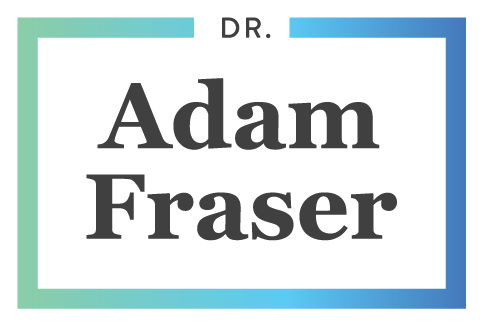Should business people listen to athletes
Often we turn to athletes as our source of inspiration to help uncover the secret to reaching your peak performance. While they can provide some sound advice, it can't always be applied to the business world.
When comparing business to sport you must remember two things;
- There are two very different types of tasks. Sport is a procedural task (simple and repetitive) and business is an explicit task (complex and novel).
- These two types of task use completely different parts of the brain. Sport uses procedural memory (housed in the brain around motor cortex). Business uses explicit memory (housed in the frontal lobes behind the forehead).
Excellence in SPORT – Procedural Memory
When we practice a repetitive task – e.g. golf swings, kick, dive, or sprinting – over and over again, this movement is embedded in our procedural memory. Each time we practice a movement it becomes more natural and smooth. When performing this task under pressure the key is to relax, don't think too deeply and simply let the procedural memory take over.
Roadblocks to performing procedural tasks well
We have all seen athletes choke under pressure and there are two main reasons:
- Thinking too much – when we do this other parts of the brain become active and we second-guess the procedural memory. The result is that our movements become clunky (if you want to throw off your friend when you are playing golf simply ask them things about their swing that requires them to analyse it).
- Letting emotion take over – When we feel things like fear and anxiety the emotional brain can short circuit our procedural memory and we have a cognitive melt down.
To improve procedural memory;
- Practice under pressure - simulated practice dramatically improves performance.
- Focus the mind on a simple routine to calm it down, so that you are not thinking too much.
- Calm your emotions – by taking long deep breaths you control the emotional reaction to pressure.
Excellence in BUSINESS – Working Memory
Explicit tasks are novel or complex and require a different part of the brain called the working memory. Working memory is like your mental etcha-sketch. This is your ability to hold information in your consciousness and process it. The power of your working memory is linked to your IQ and ability. We want our working memory to be highly engaged so it's processing as much information as possible.
Working Memory is used during tasks such as;
- Writing a proposal
- Navigating a meeting
- Selling to a client
- Solving problems
- Being creative
Roadblocks to performing explicit tasks well;
- Letting negative emotion take over – negative emotion can flood the brain with racing thoughts leaving no space left to process important information.
- Lack of clear goals – When we are not clear about exactly what we are trying to achieve, the working memory bounces around and gets distracted. Clear goals allow the working memory to be discerning and filter out unnecessary information.
- Interruptions – When we are consistently interrupted, the working memory simply fatigues from all the work it has to do.
To improve your working memory;
- Have clear intentions – get very clear about what you are trying to achieve.
- Control the Environment – Minimise distractions so the working memory can focus on what is important.
- Practice regular Meditation – Retrains the working memory to process more information.
- Writing down thoughts and emotions when stressed – A study carried out with students sitting an exam got the first group to answer questions as soon as time started. However, the second group spent the first 10 minutes writing down their thoughts and emotions. Group two beat Group one by 20 percent. Why? Writing thoughts and emotions down cleared the working memory so they could focus on the answers rather than how nervous they were feeling.
- Real time practice of holding information in working memory – i.e. practicing being present in each moment.
- Experiencing positive emotions – Positive emotions facilitate better performance of the working memory.
- Practice under pressure.
So the next time you perform a task, take into consideration the type of task it is – procedural or explicit – then adapt your preparation accordingly to achieve the best result.
